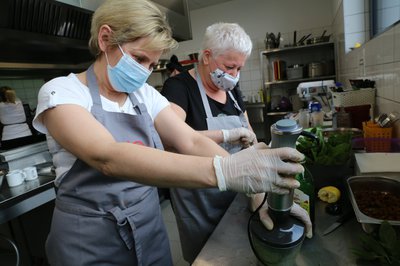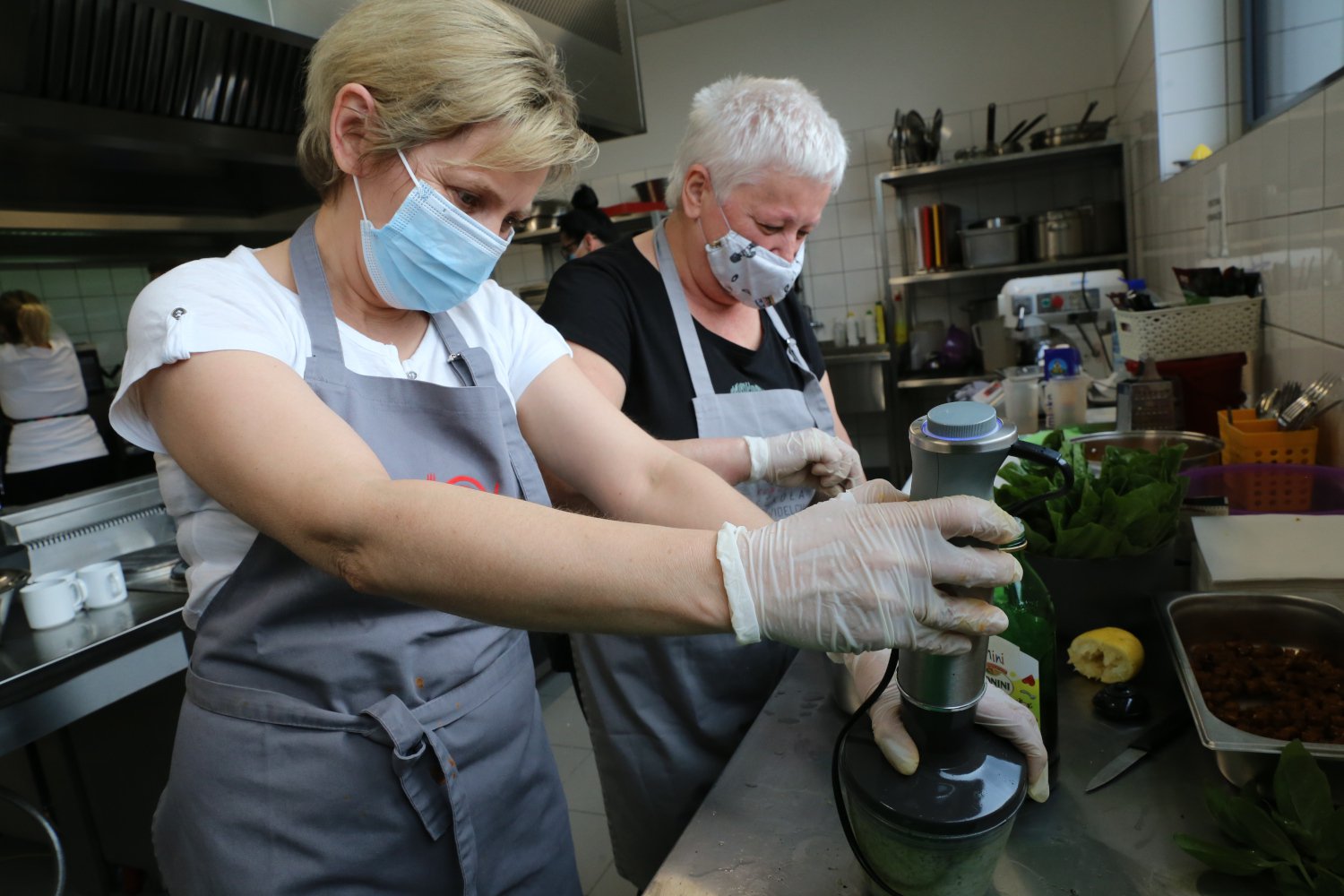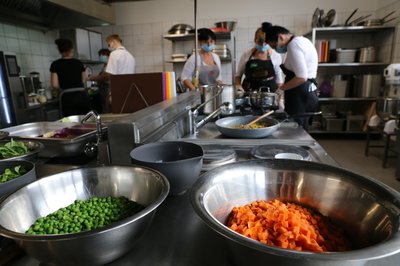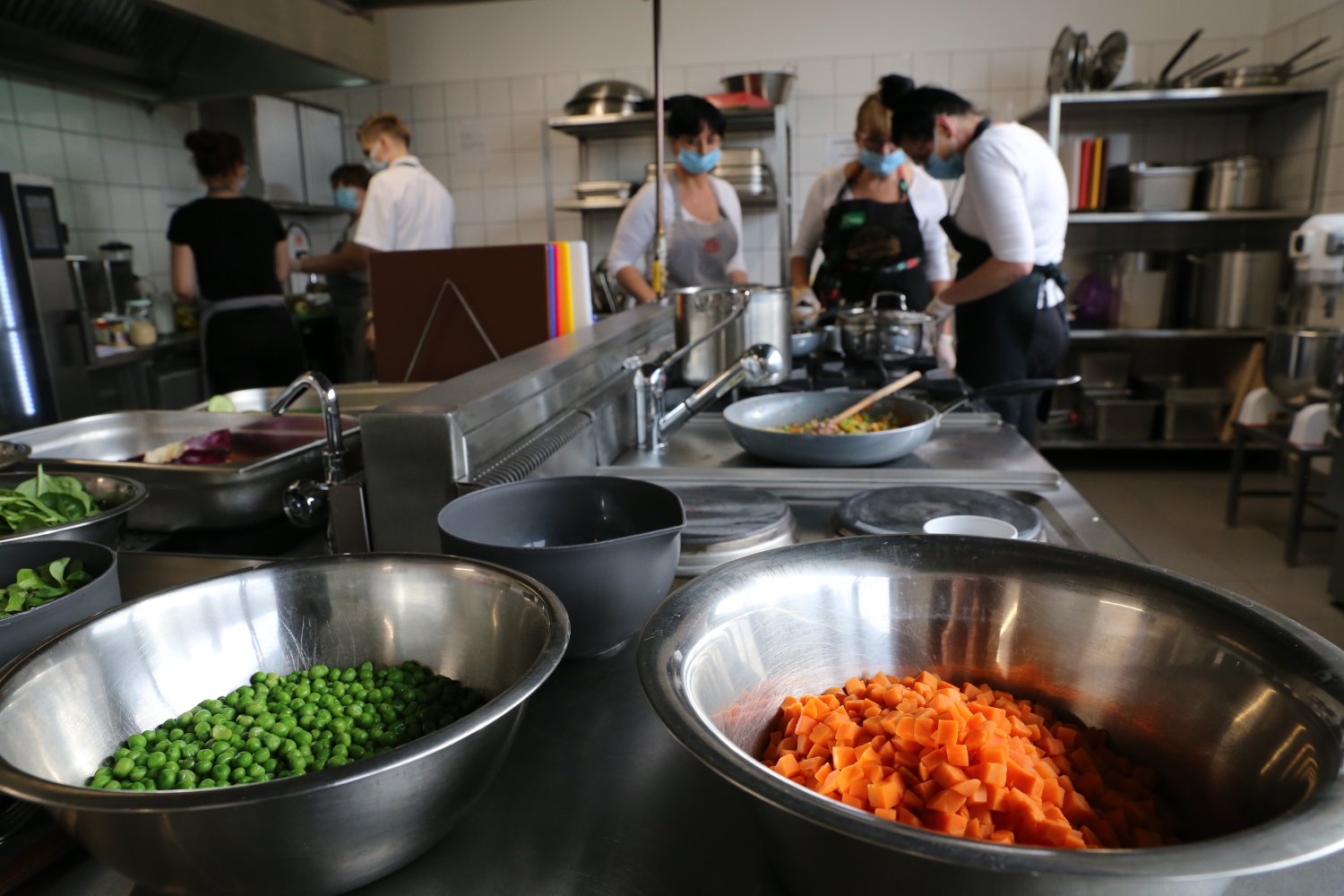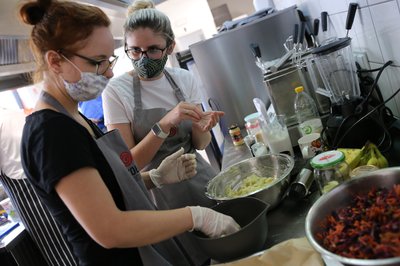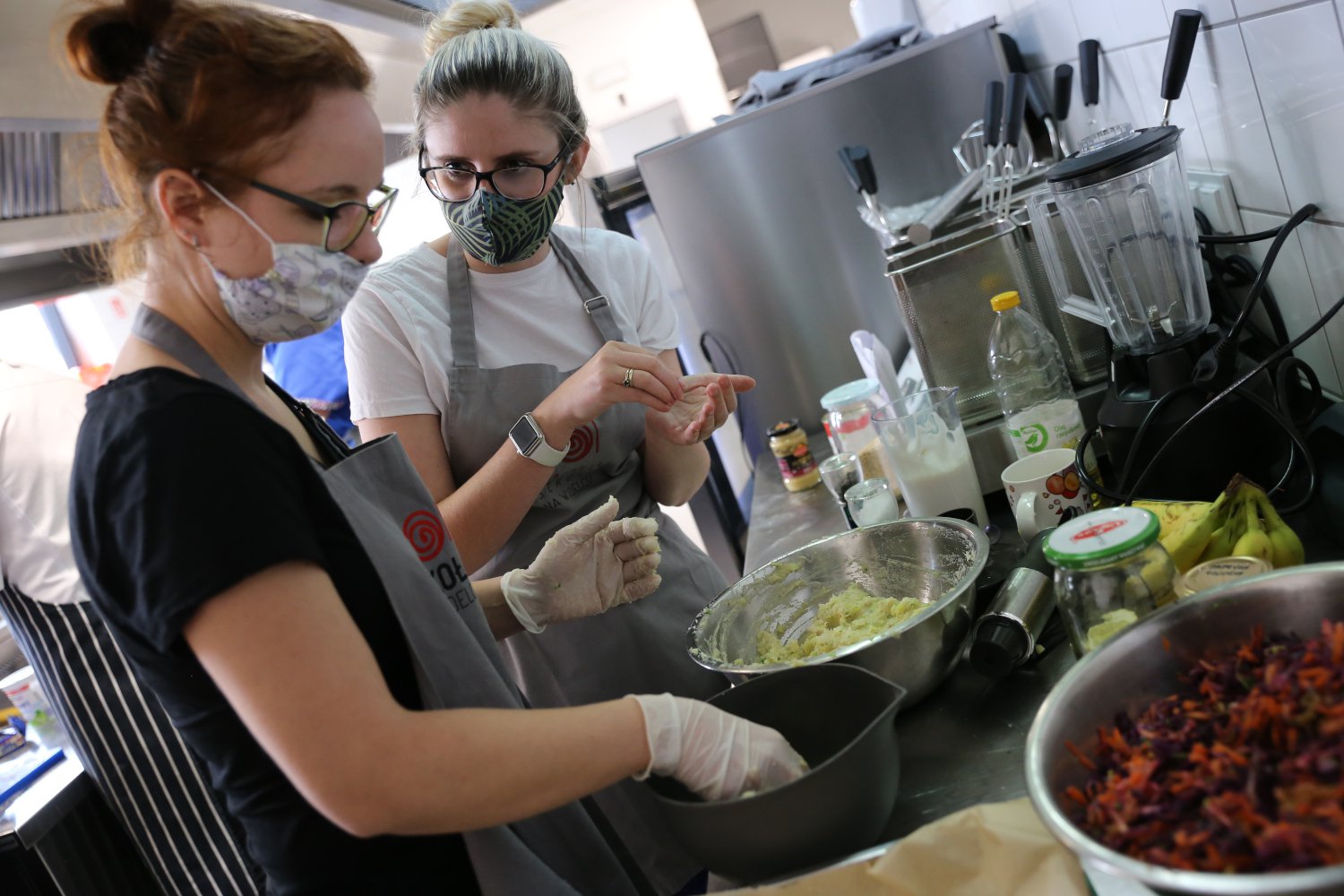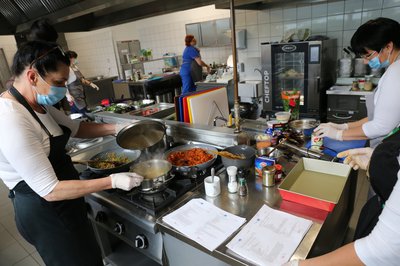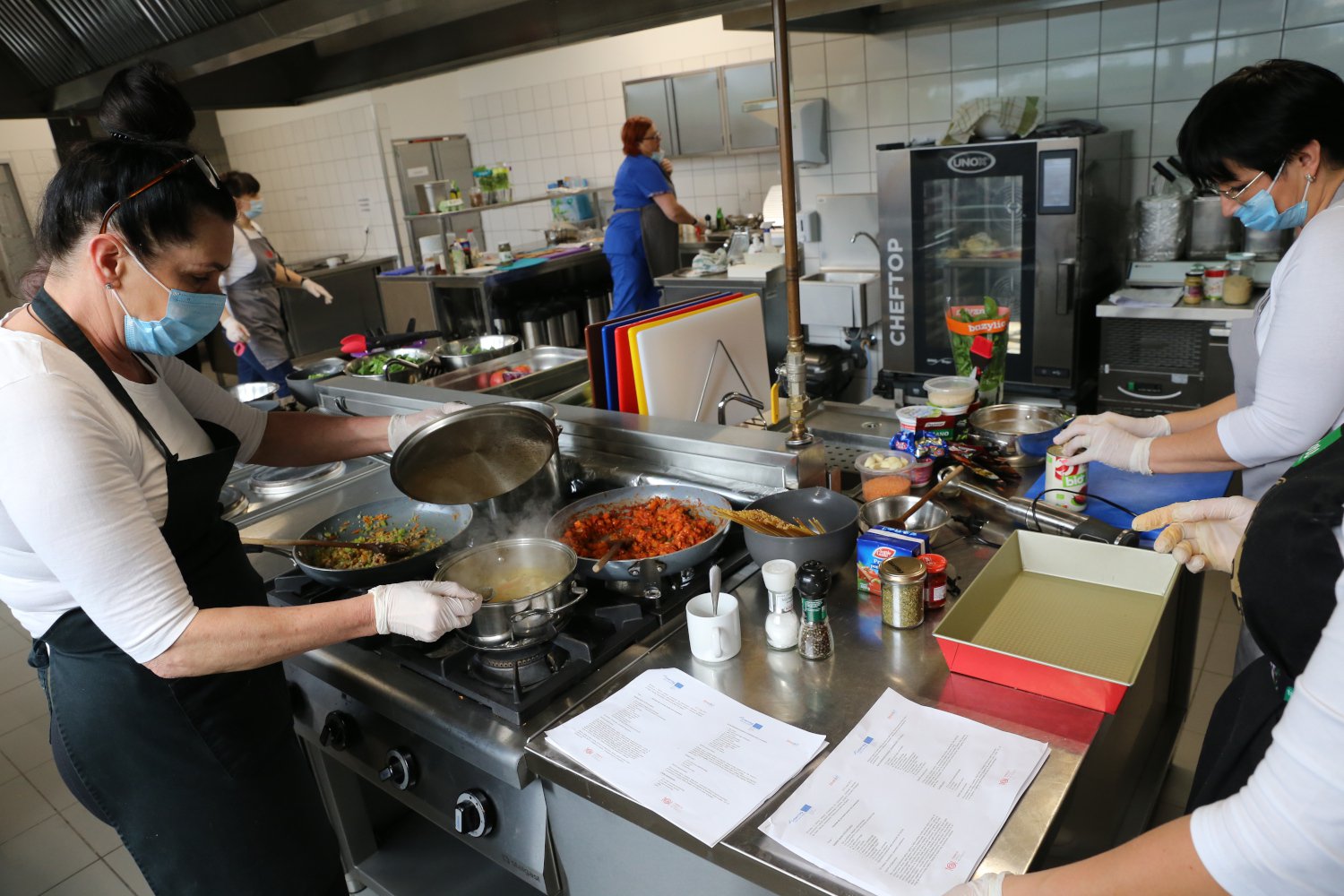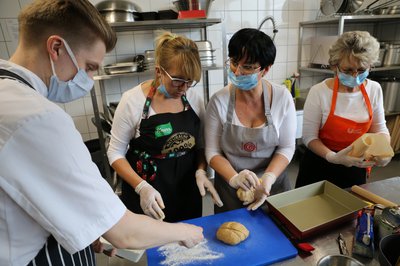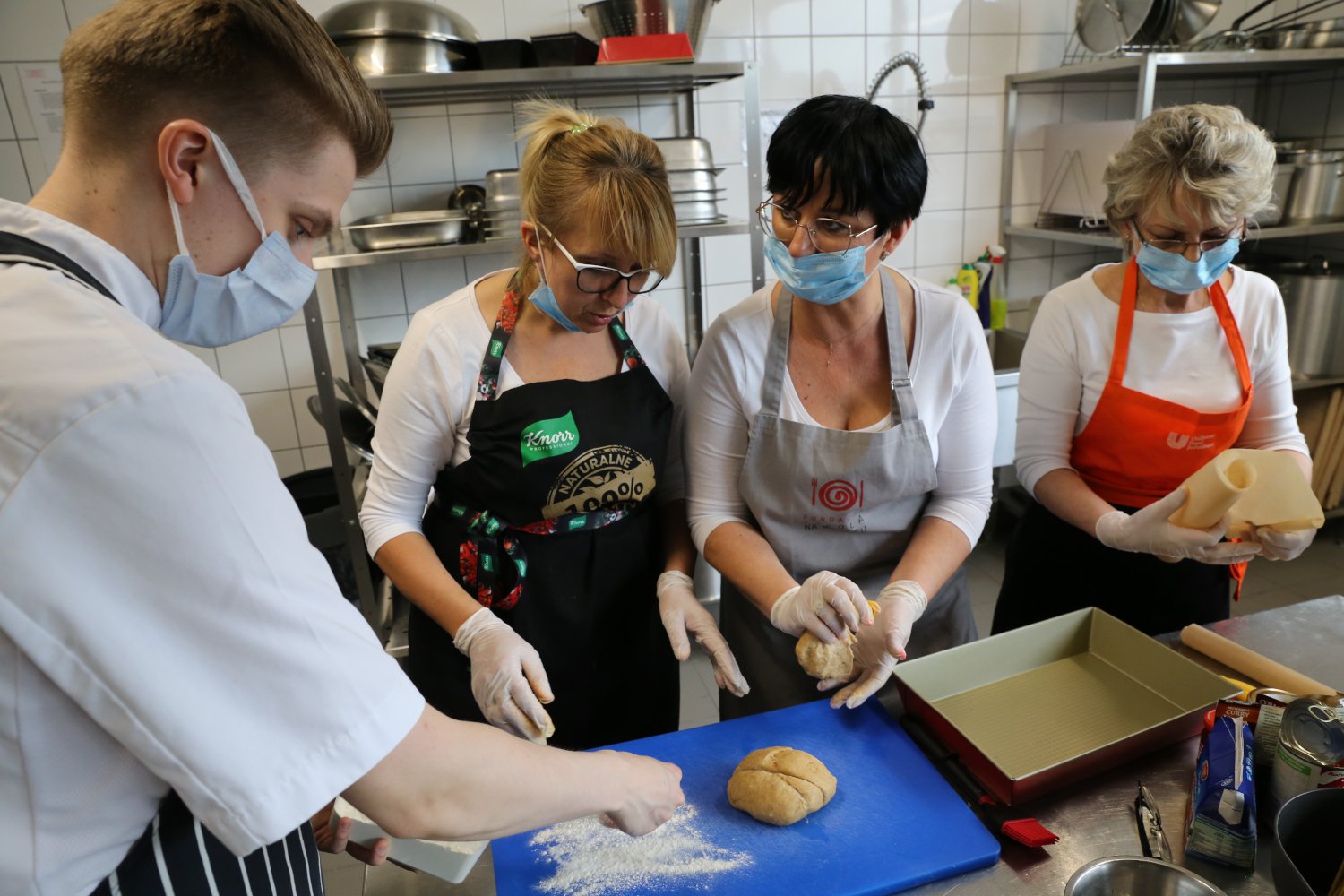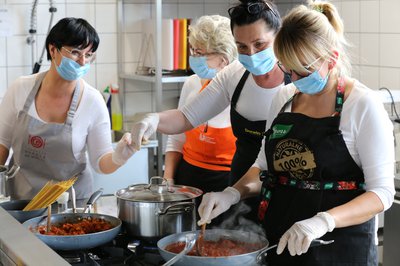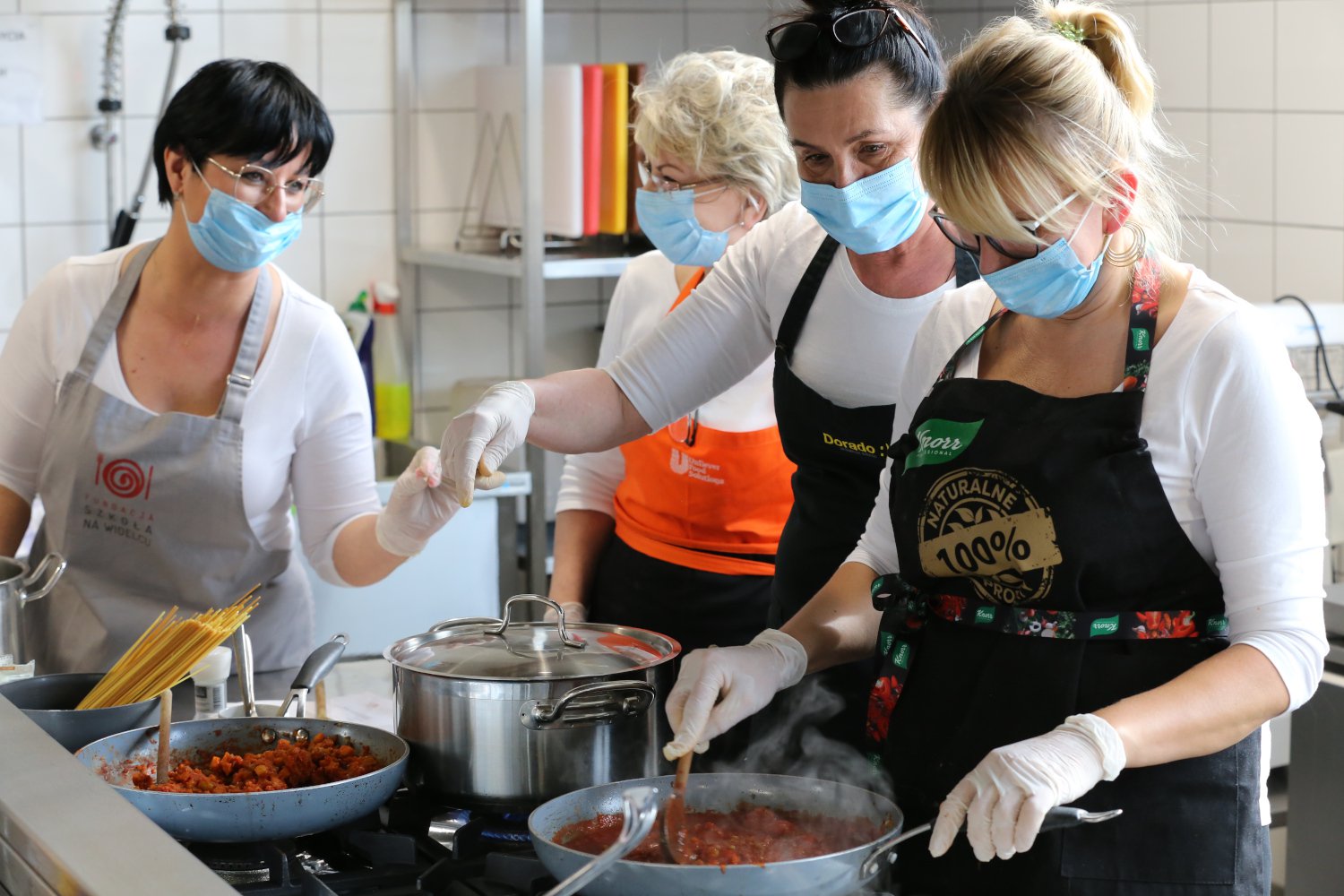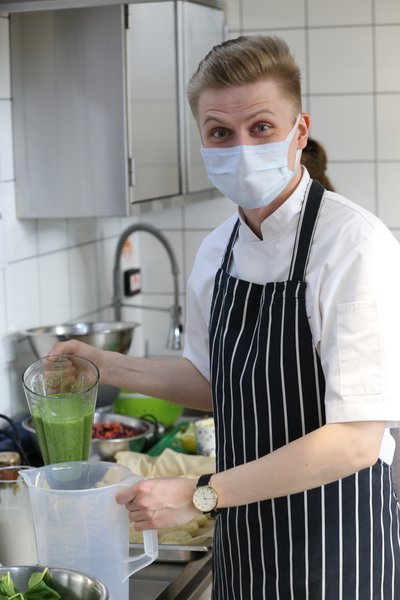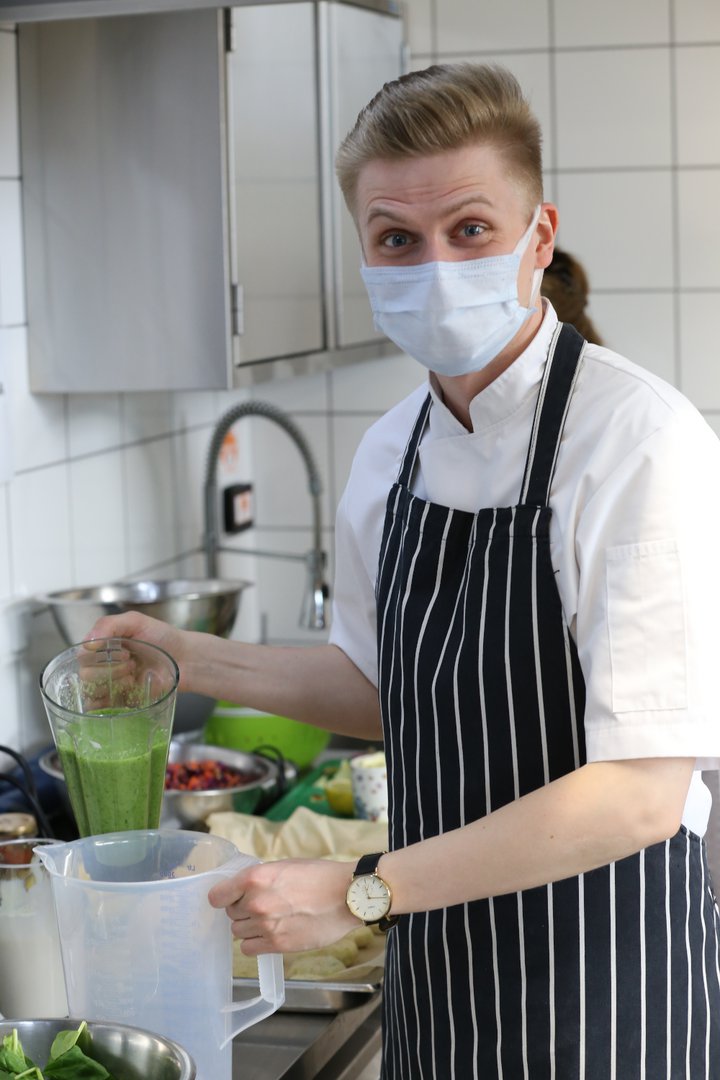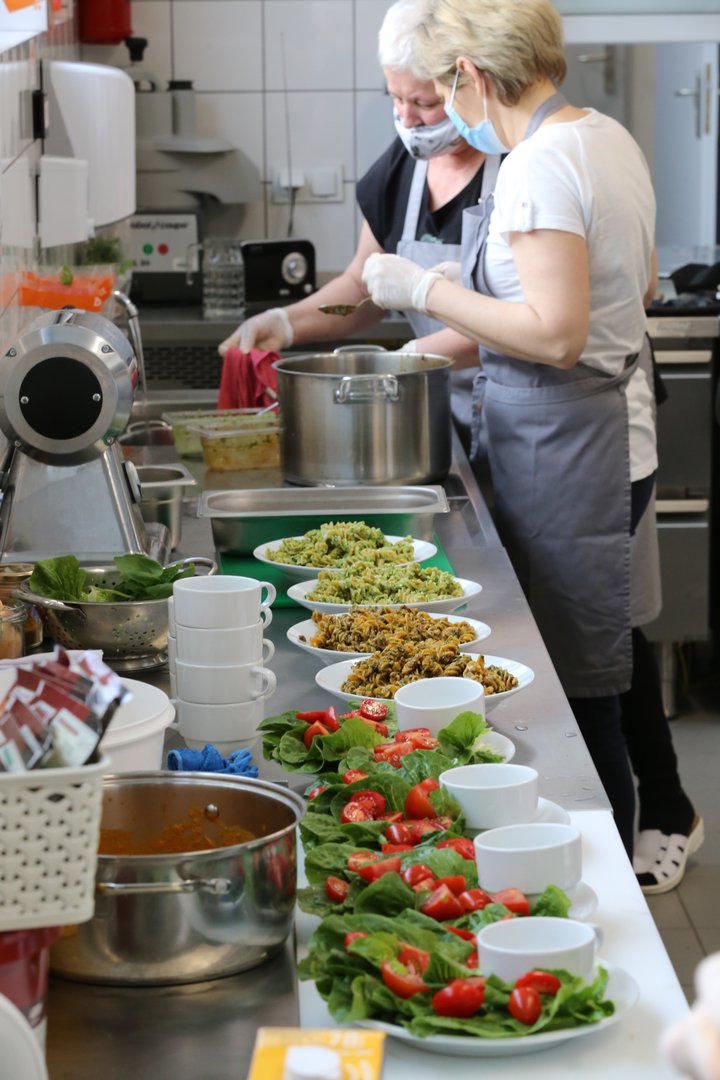Necessary Steps
- Create an adequate training program on sustainable diets by meeting representatives from the municipality, the management of the participating public institution, scientists specialising in sustainable development and nutrition, and other relevant experts or stakeholders.
- Identify the main challenges with regard to sustainability in the participating institutions (like food waste, lack of organic and plant-based meals).
- Define a budget for the programme.
- Choose experts to lead specific sections of the training, and prepare a schedule for workshops, with an agenda for each one.
- Invite employees from different institutions to participate.
- Keep a list of participants for every meeting, because they will receive a certificate at the end.
- In the beginning, start with a short written test on what the participants already know about sustainable diets. You can repeat the test after the whole course to check the development of their knowledge.
- At the end of each training session, collect the participants’ feedback. This will help to improve the program in the future.
- Consider monitoring the changes that happen at the different institutions after the training: Which measures are implemented? Which changes are permanent? Which changes didn’t work out? What are the challenges? What are their future ambitions?
More Issues To Consider
- It’s not possible to drive changes towards sustainability without the active and conscious involvement of all employees involved. Including a wide range of stakeholders, from volunteers to kitchen staff, helps raise the general awareness of the topic. This in turn underlines the importance of developing the necessary knowledge and skills amongst them.
- Practical culinary workshops are an important part of the training.
- Video and photo documentation is important for reports and media coverage.
- Generating media coverage on the program (e.g. local newspapers, regional radio) helps the institutions and employees involved feel appreciated and stay motivated.

